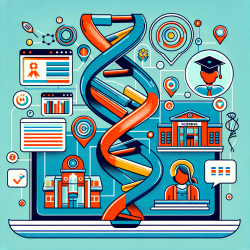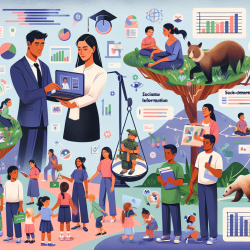Empowering Children's Futures: The Genetic Insights Behind Exam Performance
As practitioners dedicated to creating the best outcomes for children, it is crucial to stay informed about the latest research that can influence our strategies. One such groundbreaking study, "Differences in exam performance between pupils attending selective and non-selective schools mirror the genetic differences between them," provides valuable insights into the genetic factors that contribute to academic achievement. This research, conducted by a team led by Professor Robert Plomin at King’s College London, highlights the genetic differences between students attending selective and non-selective schools and their impact on exam performance.
The Study: Key Findings
The study utilized a UK-representative sample of 4814 genotyped students to investigate exam performance at age 16 and genetic differences between students in three school types: state-funded non-selective schools, state-funded selective schools (grammar), and private selective schools. By creating a genome-wide polygenic score (GPS) derived from a genome-wide association study of years of education (EduYears), the researchers found substantial mean genetic differences between students of different school types.
Key findings include:
- Students in non-selective schools had lower EduYears GPS compared to those in grammar and private schools.
- Three times as many students in the top EduYears GPS decile attended a selective school compared to the bottom decile.
- Once factors involved in pupil selection were controlled for, there were no significant genetic differences between school types, and the variance in exam scores at age 16 explained by school type dropped from 7% to less than 1%.
Implications for Practitioners
These findings have profound implications for practitioners in the field of speech-language pathology and education. Here are some actionable steps to consider:
1. Emphasize Individualized Support
Given that genetic differences play a significant role in academic achievement, it is essential to focus on individualized support for each student. Tailoring interventions to meet the unique needs of each child can help bridge the gap between genetic predispositions and educational outcomes.
2. Advocate for Comprehensive Assessments
Encourage schools to adopt comprehensive assessment methods that consider both genetic and environmental factors. This holistic approach can provide a more accurate understanding of a student's strengths and areas for improvement, leading to more effective intervention strategies.
3. Foster Inclusive Educational Environments
Promote inclusive educational environments that support all students, regardless of their genetic predispositions. By fostering a culture of inclusivity and providing equal opportunities for all students, we can help mitigate the impact of genetic differences on academic achievement.
4. Encourage Further Research
While this study provides valuable insights, it also highlights the need for further research to explore the complex interplay between genetics, environment, and education. Encourage collaboration between researchers, educators, and practitioners to continue investigating these factors and their implications for educational practices.
Conclusion
The study by Professor Plomin and his team underscores the importance of considering genetic factors in understanding academic achievement. By implementing the insights from this research, practitioners can enhance their strategies and create better outcomes for children. To read the original research paper, please follow this link: Differences in exam performance between pupils attending selective and non-selective schools mirror the genetic differences between them.










